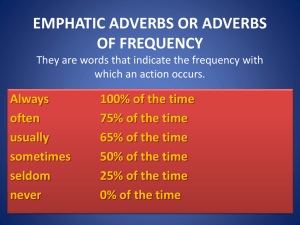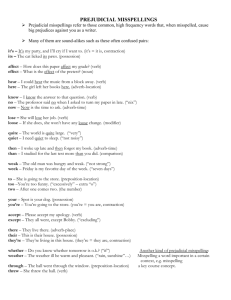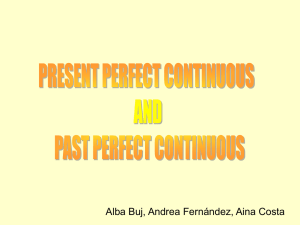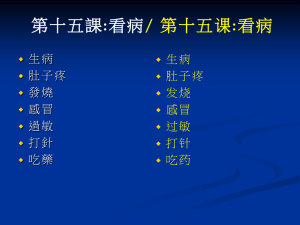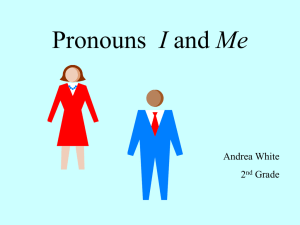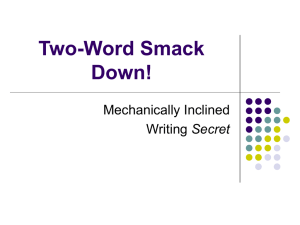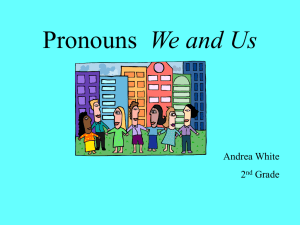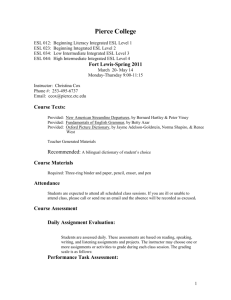Present_Continuous_and_Present_Simple - AlfaCert e
advertisement
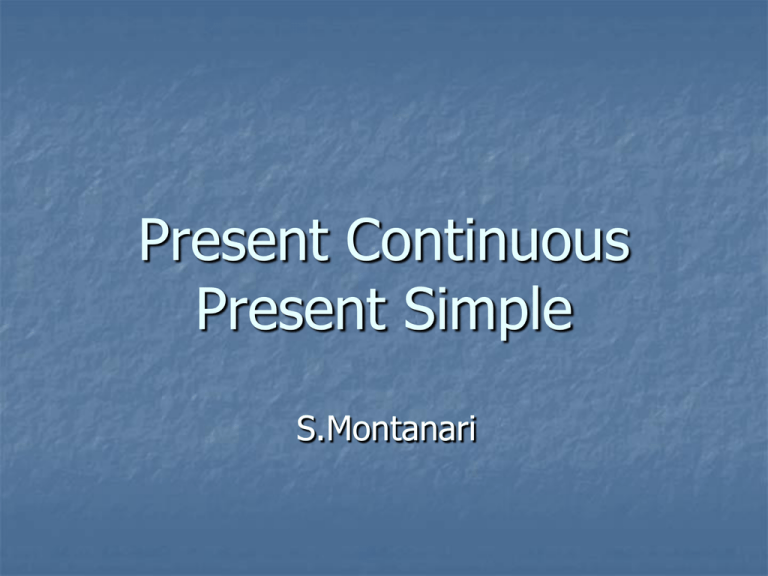
Present Continuous Present Simple S.Montanari Present Continuous Positive sentence: subject + be + verb –ing e.g. He is studying Russian They are watching TV I am staying in London for a while Present Continuous Contraction He ‘s studying Russian They ‘re watching TV I ‘m staying in London for a while Present Continuous Negative sentence subject+ verb be (negative)+verb –ing e.g. The water is not boiling It is not raining now She is not working at the moment Present Continuous Contraction The It water isn’t boiling. isn’t raining now. She isn’t working at the moment. Present Continuous Interrogative sentence: verb be+ subject+ verb -ing e.g. Are you listening to me? Where is she working now? Why are you studying English? Present Continuous It’s used to talk about actions happening at or around the time of speaking. The action is not complete. Now Around the time of speaking It’s used to talk about future actions which have already been decided/planned (a time expression is necessary). Present Continuous The water is boiling. Can you turn it off? (NOW) Jane is working in a bar to earn some extra money. (AROUND…) I’m leaving for Helsinki tomorrow. (FUTURE PLAN) Present Continuous Key words: At the moment, now etc. e.g: I’m working very hard at the moment Present Simple Positive sentence: Subject+ infinitive of the verb e.g. I work in a bank. They live in Rome We like travelling. Present Simple But remember the 3° person: She lives with her mother. He works in a hospital. Water boils at 100° *All verbs ending in –s,-ss,-sh,-ch,-x,-z,-o add –es Does, goes, teaches, watches Present Simple Negative sentence: subject+ aux. verb (negative) + verb e.g. We do not go away very often He does not drink coffee in the morning He does not travel by car Present Simple Contraction e.g. We don’t go away very often He doesn’t drink coffee in the morning He doesn’t travel by car Present Simple Interrogative sentence: ‘do’ or ‘does’ + subject + verb e.g. Where do you work? Do they understand? Does she study with you? Present Simple It’s used to talk about habitual actions It’s used to talk about things in general It’s used to talk about objective facts Present Simple I usually get up at 7 a.m. He normally meets friends after work (habitual actions) It doesn’t rain very much in summer (talking about things in general) The sun rises in the East (express a fact) Present Simple Key words: ALWAYS USUALLY OFTEN SOMETIMES HARDLY EVER NEVER Etc……… 100% 0%


